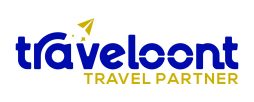In today’s quickly developing instructional landscape, the demand for reliable, comprehensive, and available resources of details is more than ever. Research Encyclopedias have actually emerged as important devices for trainees worldwide, offering a wide range of understanding at their fingertips. This post explores the importance of Research Encyclopedias, their evolution throughout the years, and their role in sustaining scholastic success.

As conventional education approaches adapt to electronic developments, finding out resources like Research Encyclopedias remain to serve as foundations of trainee learning, offering structured and curated web content. Comprehending their value and effect can assist pupils leverage these resources properly in their educational journey.
The Advancement of Research Encyclopedias
The principle of encyclopedias dates back to old civilizations, where expertise homework help community was carefully recorded and protected. From the scrolls of the Collection of Alexandria to the printed volumes of the Renaissance, encyclopedias have actually historically been cherished as repositories of human accomplishment and understanding.
With the advent of the electronic age, encyclopedias have transcended their standard print layout, ending up being a lot more interactive and available. Digital Homework Encyclopedias now use multimedia resources, including videos, graphics, and interactive components, which enhance the finding out experience and make intricate subjects extra comprehensible.
Today’s Homework Encyclopedias are not just readily available online yet are likewise continuously updated to ensure the info stays present and relevant. This shift not just democratizes accessibility to info yet also changes exactly how pupils engage with their researches, helping with a deeper understanding through varied understanding modalities.
Key Advantages of Homework Encyclopedias
Research Encyclopedias use numerous advantages for pupils, educators, and even parents supporting their youngsters’s finding out endeavors.

They serve as reputable companions, providing structured information that helps in academic research and research completion.
Among the most significant advantages is their capability to offer confirmed and extensive web content. Unlike open-source details, which can often be unreliable, encyclopedias are curated by experts, making sure precision and reliability. This integrity is essential for students who require credible information for their jobs and study jobs.
Furthermore, Research Encyclopedias support independent understanding and essential reasoning. By encouraging trainees to seek information proactively, they foster a feeling of interest and campaign, which are necessary skills for lifelong knowing.
- Comprehensive Content: Encyclopedias cover a broad range of subjects, supplying info on subjects extending various techniques.
- Interactive Discovering: Multimedia components involve different knowing designs, making details absorbable and appealing.
- Credibility: Curated by specialists, encyclopedias give reliable and accurate info.
- Continuous Updates: Routine updates guarantee trainees have access to the most existing information available.
Understanding these advantages permits trainees to maximize their learning prospective by effectively making use of Research Encyclopedias as part of their research regimen.
How to Use Homework Encyclopedias Properly
To make one of the most out of Research Encyclopedias, trainees ought to adopt strategic approaches to their usage. This starts with familiarizing themselves with the layout and navigation of these sources. Knowing just how to look for particular subjects or exactly how to use index functions can drastically decrease time invested in research study.
Another critical method is incorporating encyclopedias right into wider study techniques. While encyclopedias offer fundamental expertise, they must be made use of alongside various other research study approaches for an extra nuanced understanding of complex topics. This mix of sources expands a trainee’s perspective and deepens their grasp of subject matter.
Additionally, trainees should take advantage of the multimedia includes readily available in electronic encyclopedias. These can promote a better understanding of tough principles via visualization and interactive discovering, thus enhancing retention and understanding.
Leading Research Encyclopedias Available Today
The globe of Research Encyclopedias is vast, with many choices offered for students of different age and scholastic degrees. Below are some highly pertained to encyclopedias that have actually stood the test of time and remain to sustain student success efficiently.
- Brittanica Online: Widely known for its reliable web content, Britannica offers detailed info on a wide array of topics, with consistent updates and multimedia components.
- Globe Publication Online: Supplies an easy-to-navigate interface and tailored sources for various age, making certain material is age-appropriate and engaging.
- Encarta (Historic): Though no longer in publication, Encarta set a precedent for electronic encyclopedias and remains a notable reference for its pioneering contributions.
- Khan Academy: While not a conventional encyclopedia, Khan Academy offers an extensive collection of educational material in a format that matches standard universal sources.
These sources give a superb starting factor for trainees looking for top notch info. Their variety makes certain that individuals can find the ideal fit for their particular learning requirements and choices.
The Future of Research Encyclopedias
As innovation continues to development, the future of Research Encyclopedias shows up encouraging, with developments aimed at improving user experience and access to details.
Expert system is likely to play a significant function, supplying personalized understanding courses and more instinctive search features, which might reinvent just how students interact with these sources.
Moreover, the assimilation of digital and increased reality might open new possibilities for experiential understanding, permitting trainees to engage with content in immersive settings. Such growths are set to redefine the academic landscape, making finding out more interactive and impactful.
The Role of Educators and Students
In this developing context, teachers and students must adapt to take advantage of these technical advancements properly. Teachers can guide students being used encyclopedias as part of their curriculum, encouraging crucial reasoning and study abilities.
For pupils, the key lies in remaining curious and open to checking out new tools and resources. By embracing Research Encyclopedias and comparable instructional modern technologies, they can improve their scholastic efficiency and plan for the obstacles of tomorrow’s knowledge-driven globe.

